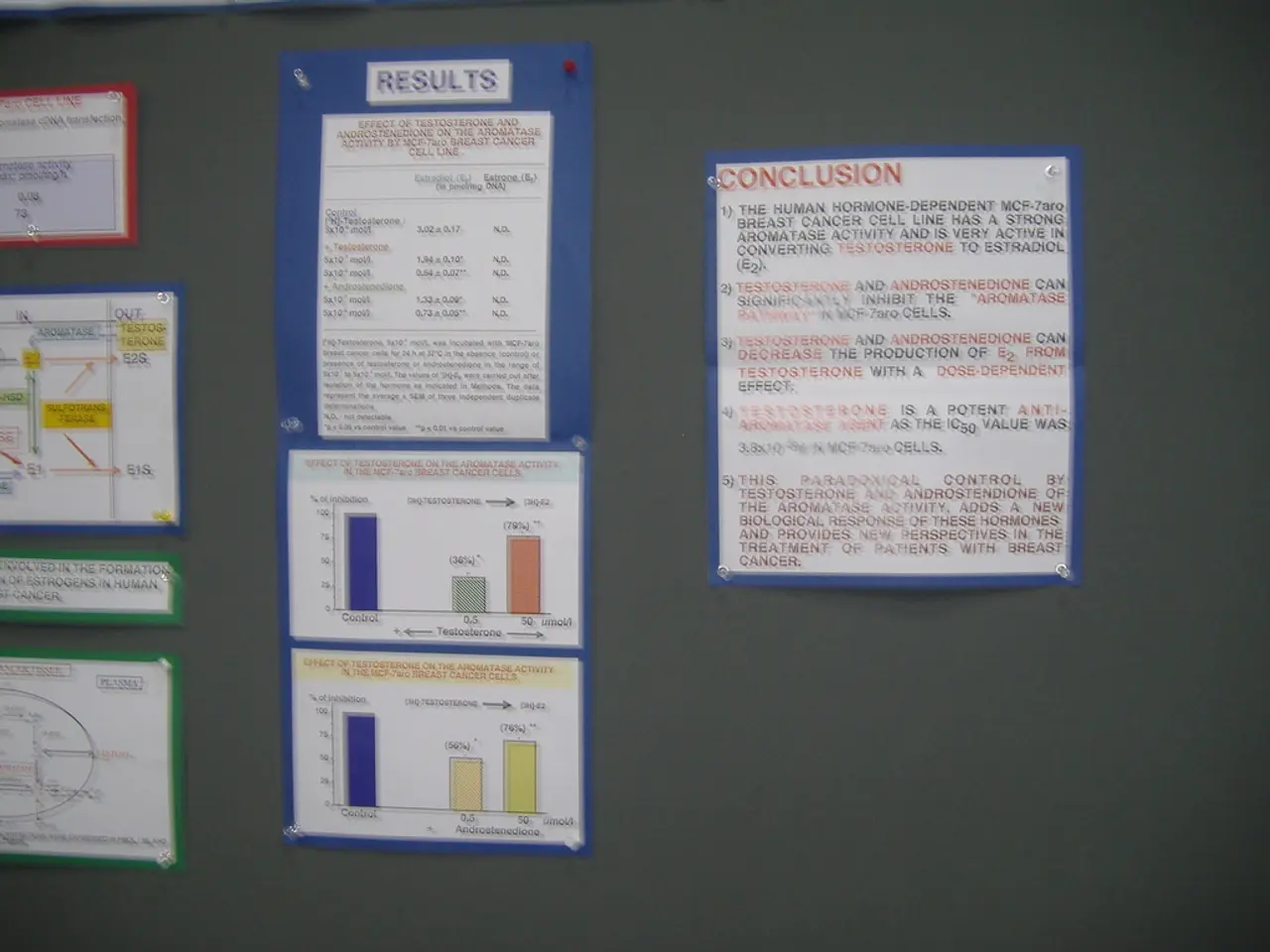Shrewd Strategies: Enhancing Logic and Creativity with Cognition-enhancing Substances
In the ever-evolving landscape of health and wellness, a growing interest lies in the use of smart drugs to enhance cognitive abilities. These substances, designed to improve memory, focus, and overall brain performance, have sparked debate and curiosity among individuals seeking to boost their mental prowess.
Prescription Stimulants: Methylphenidate and Beyond
One such category of smart drugs is prescription stimulants, like methylphenidate (MPH), commonly known as Ritalin. Recent scientific findings suggest that these drugs can improve specific cognitive functions, such as attention, working memory, and focus, particularly in tired or distracted individuals without Attention Deficit Hyperactivity Disorder (ADHD).
MPH works by enhancing brain dopamine and norepinephrine levels, chemicals linked to motivation and alertness. This enhancement may shift brain activity towards more focused thinking in decision-making and attention areas, improving performance on tasks such as driving by helping maintain consistent focus.
However, it's essential to note that the effects of MPH vary among users, and it does not universally boost test scores.
Natural Nootropic Supplements: A Less Established Path
Beyond pharmaceutical smart drugs, natural nootropic supplements like NeuroQuiet and NeuroTest claim to enhance focus, memory, processing speed, and emotional resilience. These supplements purport to achieve these benefits through the modulation of neurotransmitters and blood flow.
While the effects of these supplements are less well-established scientifically, they have garnered attention for their potential to offer cognitive benefits. However, it's important to approach their use with caution, as their safety profiles emphasize the need for careful consideration, especially when used as treatments for medical conditions.
Ethical Considerations: Safety, Fairness, and Social Implications
The use of smart drugs for cognitive enhancement raises a host of ethical questions. Concerns about safety, fairness, and social consequences are at the forefront of these debates. While some students and professionals use such drugs to boost intellectual performance, their non-medical use sparks debates about whether this constitutes illicit drug use versus acceptable enhancement, especially as substances like caffeine are widely accepted and used.
Long-term safety in healthy brains remains uncertain, delaying clear safety guidelines and including potential risks of dependency or side effects. There are also questions about equity and pressure on individuals to use cognitive enhancers to remain competitive.
The Future of Smart Drugs: A Promising Horizon
Advances in neuroscience, such as the study of brain receptor mechanisms like the 5-HT1A serotonin receptor, may inform future development of more targeted cognitive enhancers with potentially better safety profiles for mental health and cognition.
Responsible Use of Smart Drugs
When used responsibly, smart drugs can indeed enhance cognitive abilities by improving brain performance. However, ethical considerations arise due to potential side effects and the risk of dependency. Regular health check-ups and cognitive assessments can help individuals assess the impact of smart drug usage on their overall well-being.
It's crucial to monitor for any negative effects, such as insomnia, anxiety, or decreased motivation, and adjust the dosage or discontinue smart drug use if necessary. Smart drugs, when used in conjunction with a healthy lifestyle, including getting enough sleep, eating a balanced diet, and exercising regularly, can help optimise the benefits of smart drugs and reduce the risk of any potential long-term effects.
Alternatives to Smart Drugs: The Natural Route
Legal alternatives to smart drugs for enhancing cognitive abilities include natural supplements. Strategies for using smart drugs involve carefully managing dosage and considering long-term effects. Potential dangers and health implications of using smart drugs include increased heart rate, elevated blood pressure, anxiety, insomnia, and potential addiction.
Cycling smart drug use, taking them for a specific period and then taking a break, helps reduce the risk of dependence and long-term side effects. Smart drugs, when used in conjunction with a healthy lifestyle, can help improve memory and focus, thus enhancing productivity and boosting mental performance.
- In the realm of health-and-wellness, the interest in natural supplements as nootropics, like NeuroQuiet and NeuroTest, has surged, promising benefits such as enhanced focus, memory, processing speed, and emotional resilience through modulating neurotransmitters and blood flow.
- The future of smart drugs may lie in advancements in science, particularly the study of brain receptor mechanisms like the 5-HT1A serotonin receptor, potentially leading to the development of more targeted cognitive enhancers with improved safety profiles for mental health and cognition.
- Science fuses with ethical considerations as we debate the safety, fairness, and social implications of using smart drugs for cognitive enhancement. While these substances can offer improvements in brain performance when used responsibly, ethical considerations arise due to potential side effects and the risk of dependency.




